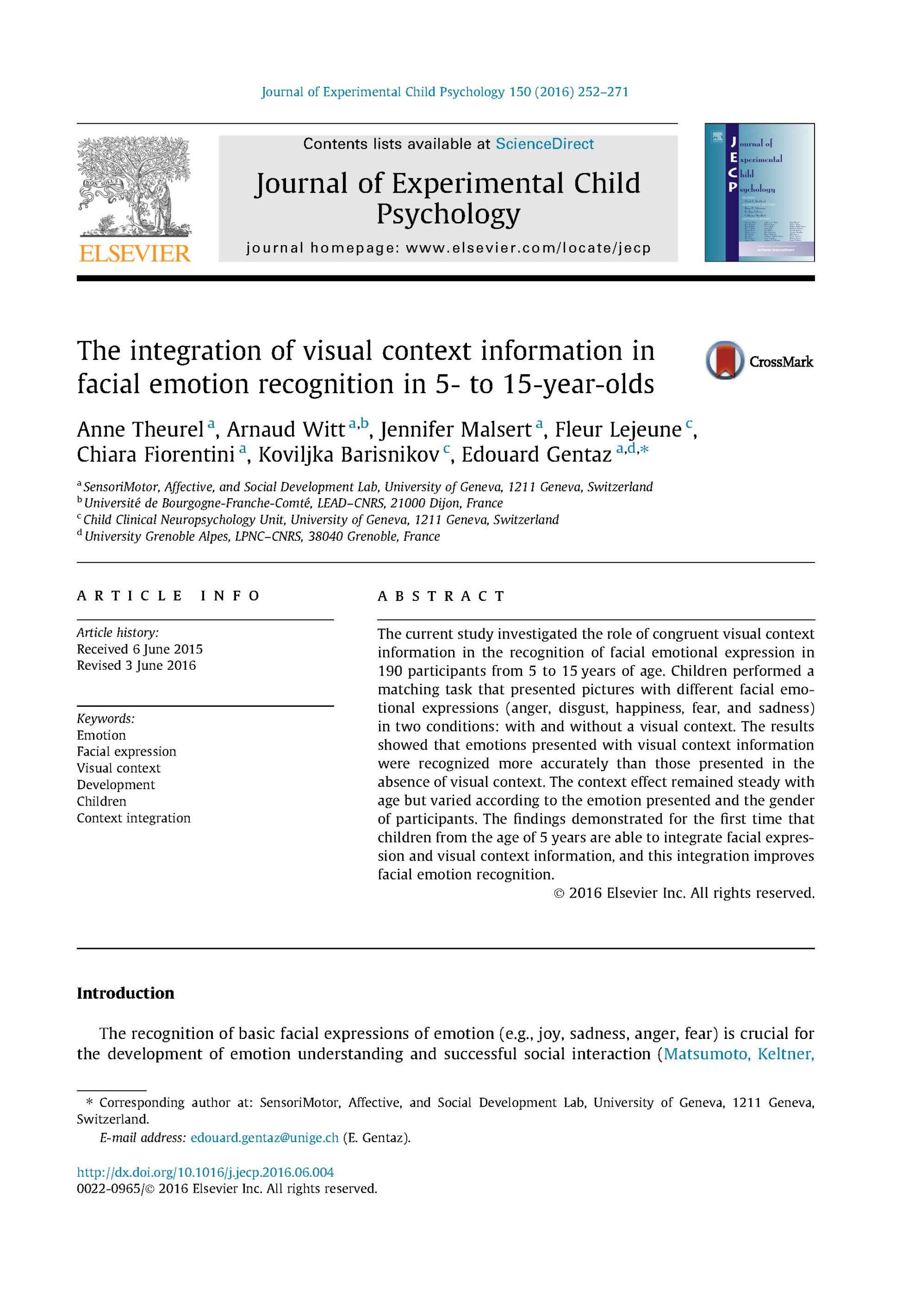The current study investigated the role of congruent visual context information in the recognition of facial emotional expression in 190 participants from 5 to 15 years of age. Children performed a matching task that presented pictures with different facial emotional expressions (anger, disgust, happiness, fear, and sadness) in two conditions: with and without a visual context. The results showed that emotions presented with visual context information were recognized more accurately than those presented in the absence of visual context. The context effect remained steady with age but varied according to the emotion presented and the gender of participants. The findings demonstrated for the first time that children from the age of 5 years are able to integrate facial expression and visual context information, and this integration improves facial emotion recognition.
The integration of visual context information in facial emotion recognition in 5- to 15-year-olds
